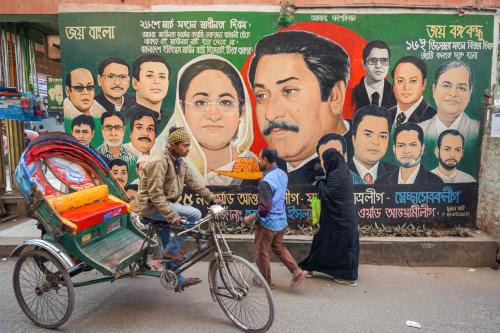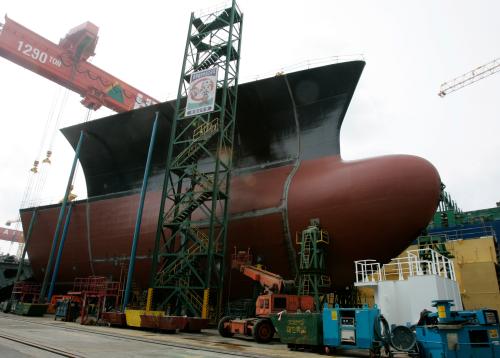President Clinton’s prospective visit to North Korea is a stunning turn of events in the stormy U.S.-North Korean relationship. His trip, if it takes place, will be confirmation of a major sea change in that relationship and that the Cold War in Northeast Asia is winding down.
While Clinton’s trip is a surprise, signs of change in the U.S.-North Korean relationship are not. Over the past year, Pyongyang has suspended its threatening tests of long-range ballistic missiles and the U.S. has dropped many of its economic sanctions against the North. The announcement of Clinton’s trip came at the end of the visit to Washington of Vice Marshal Cho Myong Rok, the number three official in North Korea’s hierarchy. The joint communique issued at the end of the visit is heavy on symbolism, But progress has been made in removing the North from Washington’s list of states sponsoring international terrorism. If all goes well before the Administration leaves office, the North may be removed from that list and the two countries may also establish diplomatic relations.
Why is Pyongyang taking these steps? First, the North is trying to ensure the survival of its isolated regime. Recent overtures to South Korea—aside from seeking to lesson tensions and to secure economic assistance—are designed to turn Seoul into an ally in Chairman Kim Chong-il’s quest to turn the U.S. into a friend. This is in stark contrast to the past when South Korea often stood in the way of better relations.
Second, the North may not fully understand American domestic politics but it does understand that there are unfriendly “hard liners” called Republicans who have criticized President Clinton’s efforts to improve U.S.-North Korean relations. By taking these steps now with South Korea and Clinton, Pyongyang is taking out an insurance policy that it hopes will make it more difficult for a Republican Administration to adopt tougher policies.
Finally, the North may be trying to increase pressure on Tokyo. Pyongyang knows very well that the big economic prize in its diplomatic offensive are the billions of dollars in assistance Japan stands ready to provide if normalization talks succeed. Improving relations with Seoul and Washington may only make Japan more anxious not to be left behind and, therefore, more ready to compromise.
There would seem to be few perils for the Administration in moving ahead. One important consideration will be to find the right balance between symbolism and substance. Doubts remain about whether North Korea is really serious or just seeking near-term benefits. Pictures of hundreds of thousands of North Koreans lining the streets of Pyongyang to greet President Clinton and waving American flags after decades of vilifying the U.S. will be gratifying and even astounding. Removing North Korea from the terrorism list and establishing diplomatic relations may have political significance. But, for Americans, real progress will come only if the military threat posed by Pyongyang is reduced.
Tangible signs of progress would include further limits on the North’s indigenous missile deployments and exports to unstable regions like the Middle East. Real progress might also include reductions in North Korea’s forward-deployed conventional forces. For example, in 1994, Kim Il Sung suggested to Jimmy Carter one possible measure, thinning out forces confronting each other on the 38th parallel. Real progress would also entail reducing and eventually eliminating North Korea’s suspected stockpile of chemical and biological weapons.
The Brookings Institution is committed to quality, independence, and impact.
We are supported by a diverse array of funders. In line with our values and policies, each Brookings publication represents the sole views of its author(s).


Commentary
Op-edScratch One Rogue State?
October 13, 2000